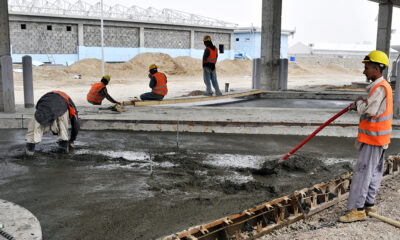Latest News
UNAMA chief delivers stark report to UN Security Council
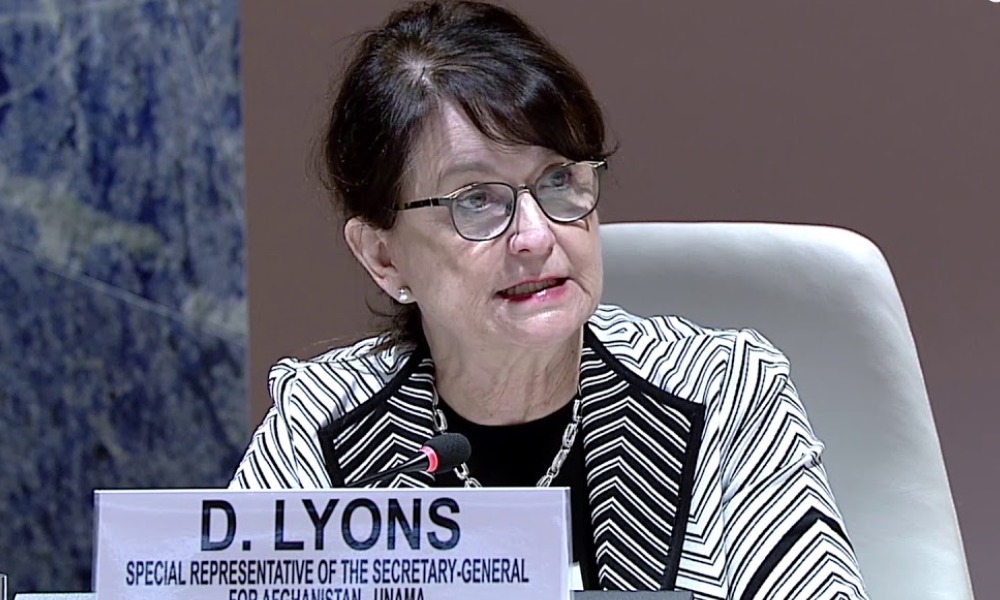
United Nations Assistance Mission in Afghanistan (UNAMA) chief Deborah Lyons sounded the alarm on Tuesday when she told the UN Security Council that soaring rates of violence continue to hamper humanitarian efforts in the country.
She said that six months into Afghanistan’s latest round of peace talks, progress remains slow and demands strong support from the global community.
“We always knew that this would be a complicated peace,” said Deborah Lyons, as she briefed the 15-member Council during a videoconference meeting.
Describing Tuesday’s meeting as a chance to take stock six months after the launch of the Afghanistan Peace Negotiations, the signing of an agreement between the United States and the Taliban and a joint declaration between Kabul and Washington, D.C., she said attacks against civilians have only escalated.
The extreme violence is leading both Afghans and their international partners to voice understandable frustration. “The killings, the displacement, the suffering of the Afghan people must end now,” she stressed.
Noting that the first two months of 2021 saw a worrying spate of brutal attacks deliberately targeting civilians. She said the deaths of more than 80 Afghans — including media staff, civil society, members of the judiciary, religious scholars and government officials — have been recorded to date.
“This does not convey the full, crippling impact of the violence on Afghanistan’s civic life,” she said, adding that for every Afghan killed, many more leave their professions or plan to flee the country.
She also stated that ISIS-K (Daesh) claimed responsibility for 25 violent attacks in the last quarter, a steep increase, and she highlighted a deepening humanitarian crisis and the threat of drought. Food insecurity is at record levels, with more than 40 per cent of the population at emergency and crisis levels, she said..
Against that backdrop, she called on the international community to contribute generously to the humanitarian response plan, which is only six percent funded, while warning that money alone is not enough.
She also said humanitarian workers continue to be targeted by threats and violence, and the impartial delivery of aid is obstructed.
Emphasizing that such acts are illegal and unjustifiable, she recalled that she recently raised those issues with Taliban leaders and her office has been working with the Afghan government to ensure its legislative framework protects the space of non-governmental organizations carrying out humanitarian work.
She said all these developments are taking place against the backdrop of slowing progress in the peace talks in Doha. She said both sides need to continue to show their commitment to remaining at the negotiating table.
Welcoming the appointment of Jean Arnault of France as the Secretary-General’s new Personal Envoy on Afghanistan and Regional Issues, she said Member States have also played a vital role in coming up with new initiatives to reinvigorate the peace process.
Pointing to a proposed meeting in Turkey as another such opportunity, she stressed that such initiatives must be focused, coherent and, above all, they must reinforce rather than undermine the Doha negotiations.
According to Lyons, decades of conflict have created real grievances on all sides, as well as a deep lack of trust among the parties.
She also said there are genuine and profound differences between the Afghan Republic and the Taliban’s desired end State.
Addressing those issues will continue to require patience and commitment on both sides, she said, adding that any lasting peace settlement must consider the views and concerns of all Afghans and not just those of an elite few.
She said she hopes by her next briefing to the Security Council real progress would have been made.
Lyons stated that she hopes by June, there would have been at least a substantial de-escalation of violence, if not a ceasefire.
While those developments could mark a real turning point, the road ahead is still not clear and “we are moving into a period of great uncertainty, she said.
Shaharzad Akbar, Chairperson of the Afghan Independent Human Rights Commission, also briefed the Council, stressing that the war in Afghanistan remains one of the world’s deadliest conflicts for civilians.
She said the onslaught of attacks has further diminished the country’s civic space, leading to self-censorship for journalists, human rights defenders and religious scholars, and thus impacting the quality of public engagement and debate on issues critical to Afghanistan’s present and future.
Akbar also stated that the country’s peace talks remain dominated by a group of elite men, some of whom have themselves been responsible for perpetuating violence.
“Building peace takes more than a deal among elites,” she said, calling for a more inclusive national endeavour that ensures the participation of women, minorities, youth, civil society and the vibrant Afghan media, as well as victims.
A minimum of 30 percent of the participants in the peace talks should be women, and more steps are needed to achieve full gender balance in the future, she said.
“At the recent conference in Moscow, I, like many Afghan women, was shocked and angered to see only one Afghan woman, Dr. Habiba Sarabi, in a room full of men discussing the future of my country,” she said.
Afghan women have fought for their human rights for many decades, and have made considerable progress in education, employment and political participation. They are experts everywhere, from the fields of politics to public administration, security, business, science and information technology.
Excluding or marginalizing them from the main discussions about the future of Afghanistan is not only unjust and unacceptable, but unwise and unhelpful to a lasting peace, she said.
Latest News
Moscow’s move a ‘significant step toward recognizing Afghanistan’s political realities’, says Haqqani
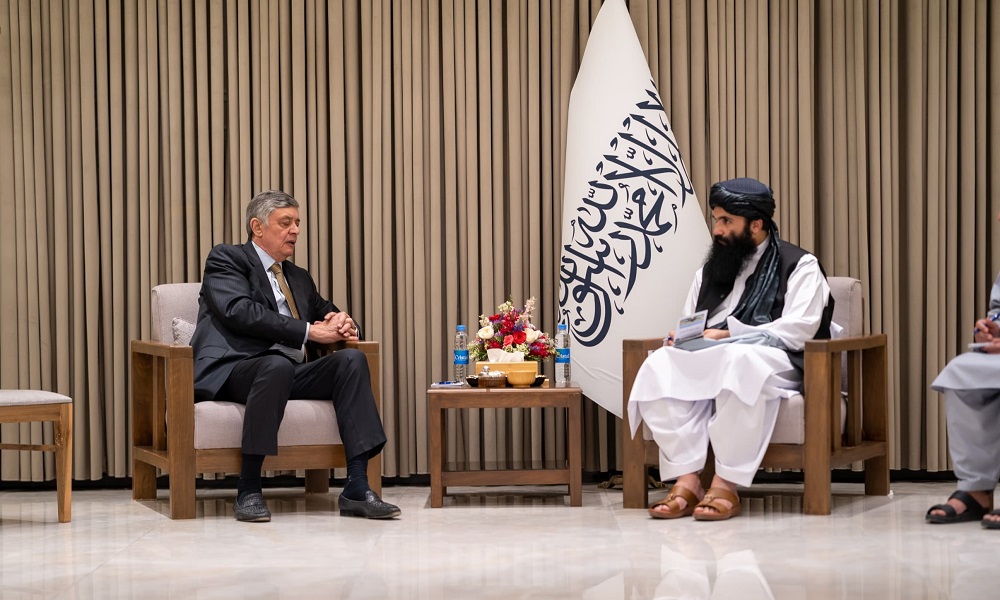
Acting Minister of Interior Sirajuddin Haqqani on Wednesday met with Zamir Kabulov, Russia’s special envoy for Afghanistan, and Dmitry Zhirnov, Russia’s ambassador to Kabul.
Haqqani expressed appreciation for Moscow’s recent decision to remove the Islamic Emirate from its list of terrorist organizations. He described the move as “a significant step toward recognizing the political realities of Afghanistan.”
In a statement, the interior ministry said that both sides emphasized the importance of upgrading diplomatic relations to the level of embassies and reaffirmed their commitment to mutual cooperation in the fields of security and trade.
During the meeting, the two parties also discussed regional and bilateral cooperation in the areas of security, economy, and commerce, and stressed the need to strengthen ties between the two countries.
Latest News
Special meeting will be held to launch Afghanistan–Russia joint commission, says Kabulov
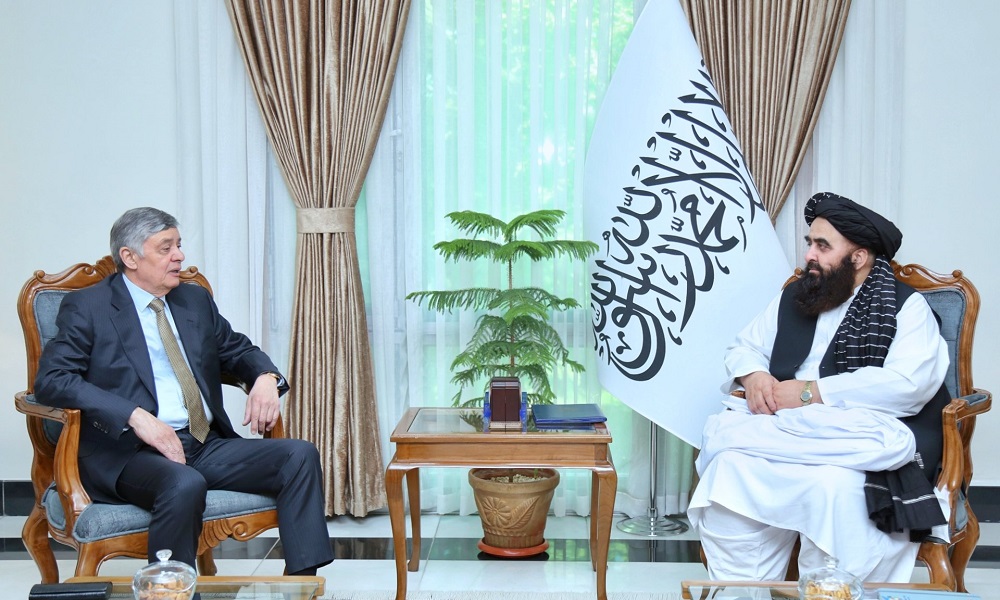
Zamir Kabulov, Russia’s special envoy for Afghanistan, on Wednesday met with Afghanistan’s Acting Minister of Foreign Affairs Amir Khan Muttaqi in Kabul and said a special meeting will be held on the sidelines of the Kazan Forum to officially launch the permanent joint commission between Russia and Afghanistan.
According to a statement issued by the Afghan foreign ministry, Kabulov said that expanding relations with Afghanistan is important to Russia, and for that purpose, Moscow has taken steps to remove obstacles in the path of developing bilateral ties.
This comes after Moscow last week removed the Islamic Emirate from their list of militant organizations.
During the meeting, Muttaqi expressed appreciation for Russia’s recent move to remove the IEA from its list of banned organizations and stated that the Islamic Emirate will soon appoint a diplomat at the ambassadorial level to serve in Moscow.
The two sides also discussed enhancing bilateral relations between Afghanistan and Russia, expanding economic and trade cooperation, and addressing certain regional issues.
The 16th International Economic Forum “Russia – Islamic World: Kazan Forum” will be held from May 13 to 18 in the city of Kazan, Russia. Afghan products and goods will be showcased at the event.
Latest News
Balochistan business chamber asks Islamabad to issue work permits to Afghan refugees
This comes amid Pakistan’s ongoing campaign to expel hundreds of thousands of Afghan refugees living in the country.
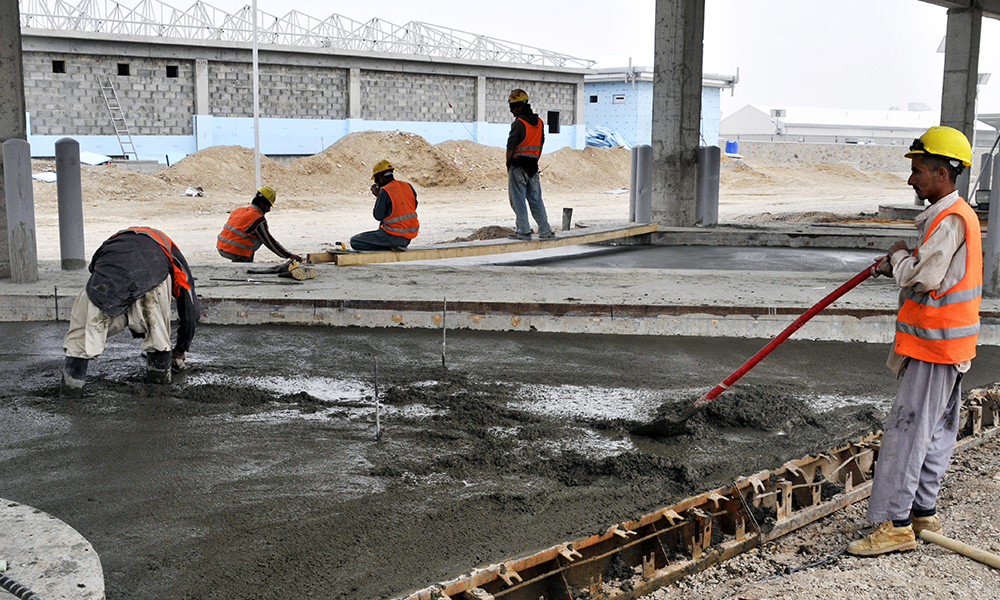
The Balochistan Chamber of Commerce and Industry in Quetta, Pakistan, has appealed to the federal government to issue work permits to skilled Afghan refugees who work in various sectors including mining and agriculture.
Haji Akhtar Kakar, the vice president of the chamber of commerce and industry, made the request while pointing out that the existing shortage of skilled labour could worsen further if the issue was not addressed promptly, Dawn news reported.
This comes amid Pakistan’s ongoing campaign to expel hundreds of thousands of Afghan refugees living in the country.
Akhtar said however that due to Balochistan’s deteriorating security situation, mine owners, farmers and industrialists have had to rely on Afghans for skilled labor as Pakistani workers from other provinces were reluctant to move to Balochistan.
According to him, the decision to expel Afghan refugees had severely impacted the agriculture, mining, and industrial sectors in Balochistan, as a significant portion of the workforce came from Afghanistan.
-
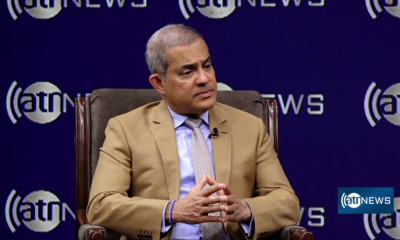
 Latest News5 days ago
Latest News5 days agoEngagement and diplomacy key to solving Afghanistan’s challenges, says Ratwatte
-

 Sport4 days ago
Sport4 days agoAfghanistan qualify for U19 Cricket World Cup 2026
-

 Regional5 days ago
Regional5 days agoDeadliest US strike in Yemen kills 74 at oil terminal, Houthis say
-

 World4 days ago
World4 days agoThousands of protesters rally against Trump across US
-

 World4 days ago
World4 days agoIran, US end nuclear talks in Rome, agree to meet next week
-

 Latest News3 days ago
Latest News3 days agoPolio vaccination campaign launched in Afghanistan
-

 International Sports3 days ago
International Sports3 days agoIPL 2025: 14-year-old Vaibhav Suryavanshi becomes youngest IPL player
-

 Latest News2 days ago
Latest News2 days agoChina invites various Afghan delegations to attend Shanghai forums










